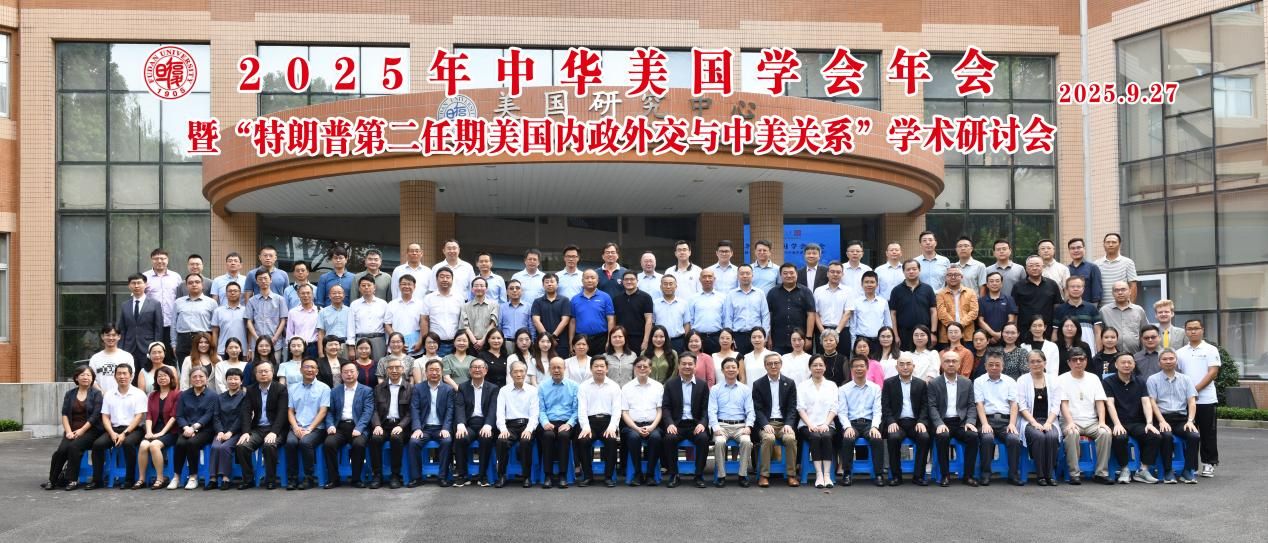From September 26 to 28, 2025, the 2025 Annual Conference of the Chinese Association for American Studies (CAAS) and the academic symposium on “Domestic and Foreign Policies of the Second Trump Administration and China–U.S. Relations” were successfully held at the Center for American Studies of Fudan University (CAS Fudan). The event was hosted by CAAS and co‑organized by the Institute for American Studies at the Chinese Academy of Social Sciences (IAS CASS) and CAS Fudan.
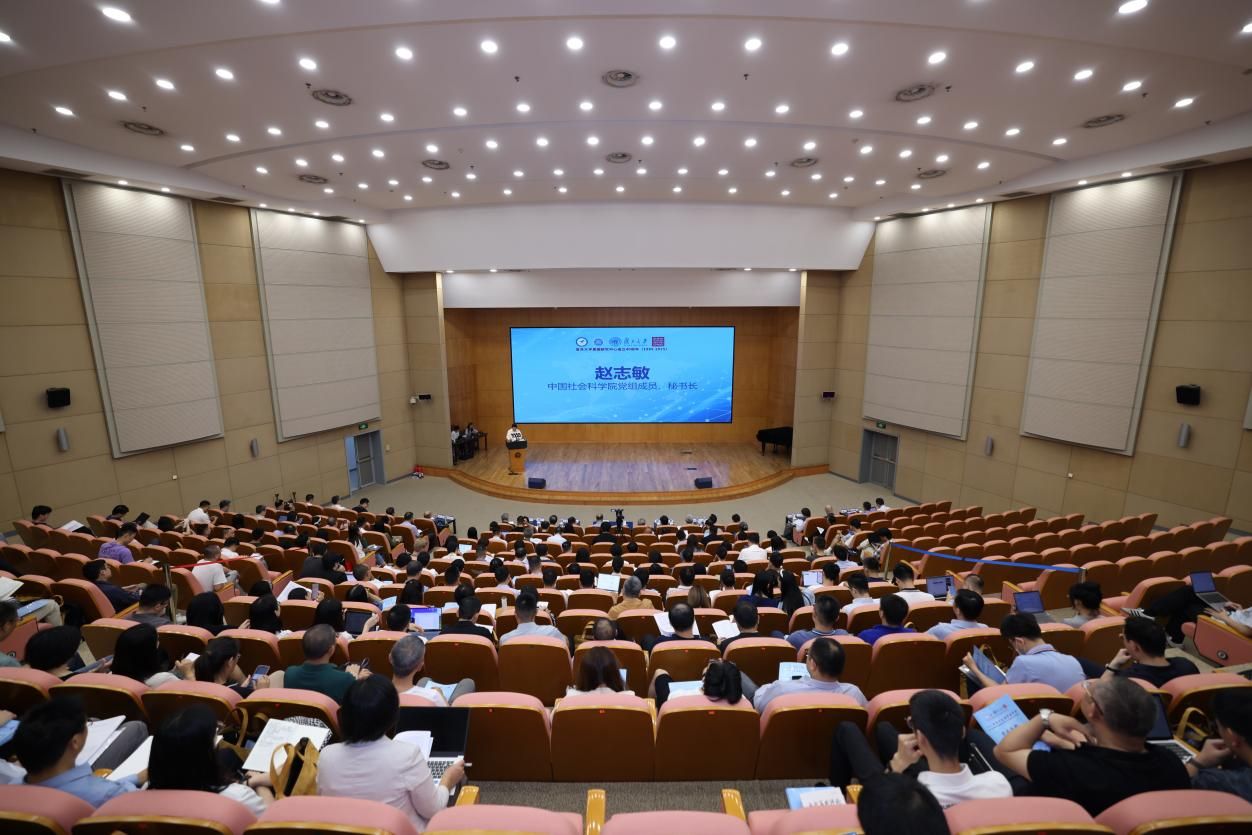
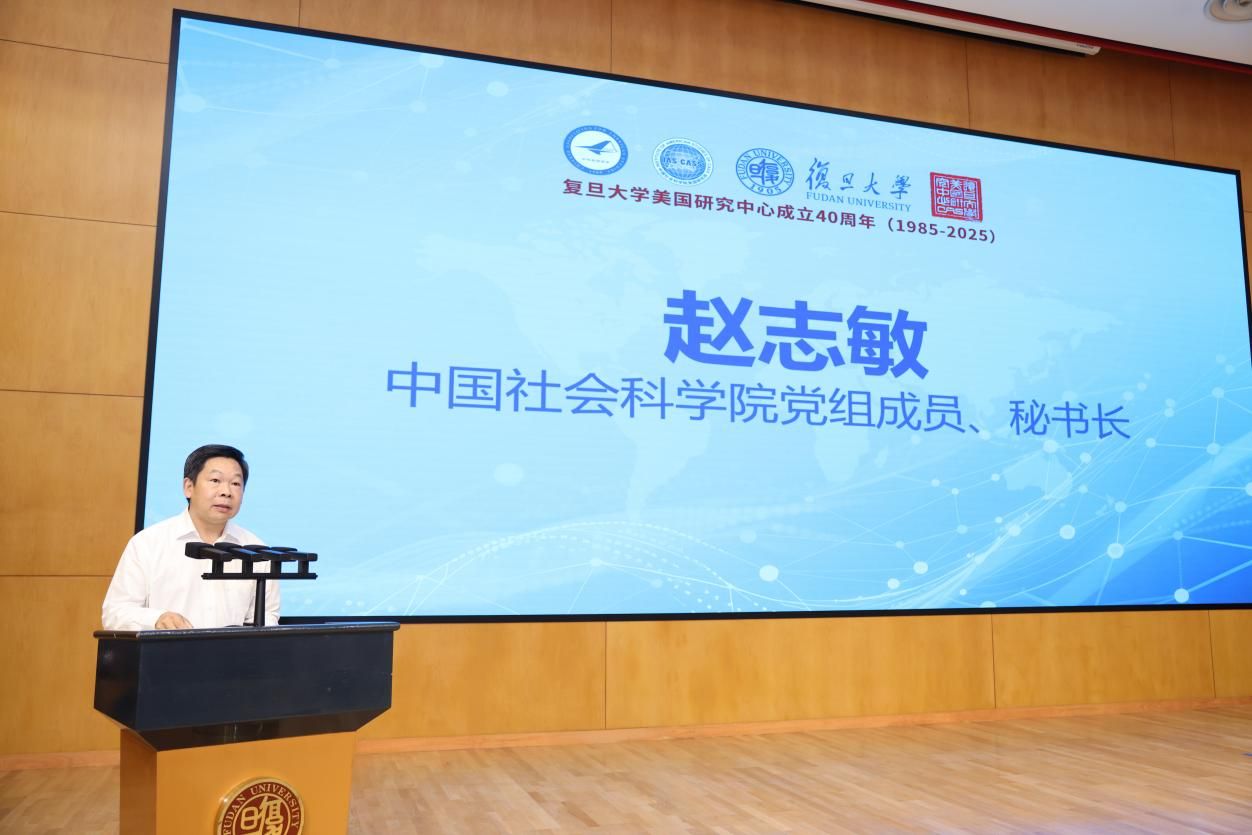
Zhao Zhimin, Secretary General of CASS, and Chen Zhimin, Vice President of Fudan University, attended the opening ceremony and delivered remarks. Nearly 300 faculty members and students from leading universities and think tanks across China—including Peking University, Tsinghua University, Renmin University of China, Nanjing University, CASS, and Fudan University—participated in the conference.
In his remarks, Zhao Zhimin noted that we are living in a time of significant turbulence and transformation. He emphasized that many policies pursued under “Trump 2.0” have generated domestic shocks in the United States and produced international ripple effects, challenging the stability of China–U.S. relations. He called on scholars to approach U.S. studies with strategic vision, social depth, and global perspective—to fully grasp the disruptive impact of “Trump 2.0.” He also urged long‑term thinking, systematic planning, and academic rigor to contribute to national development and rejuvenation, strengthen societal foundations for bilateral ties, and accelerate the building of autonomous knowledge systems in American and area studies.
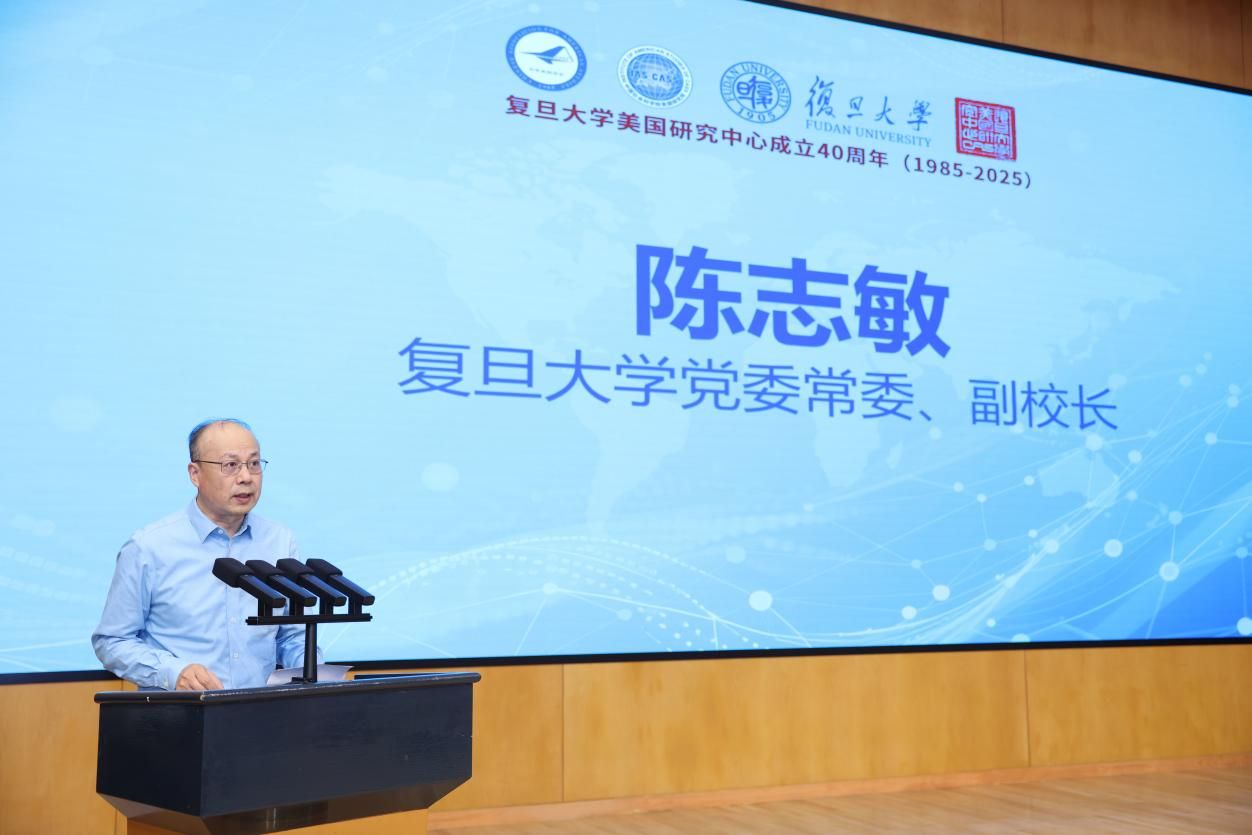
Chen Zhimin remarked that this year marks both the 120th anniversary of Fudan University and the 40th anniversary of its Center for American Studies. He encouraged scholars to uphold rigorous academic standards and deepen research on U.S. politics, economy, society, and culture. He called for close attention to China–U.S. interactions in trade, technology, people‑to‑people exchanges, and global governance, with the aim of producing influential academic achievements. He noted that Fudan has launched a special “Talent Development Program” for U.S. studies and is advancing Area Studies as a first‑level interdisciplinary discipline under the broader goal of building an autonomous knowledge system for Chinese philosophy and social sciences.
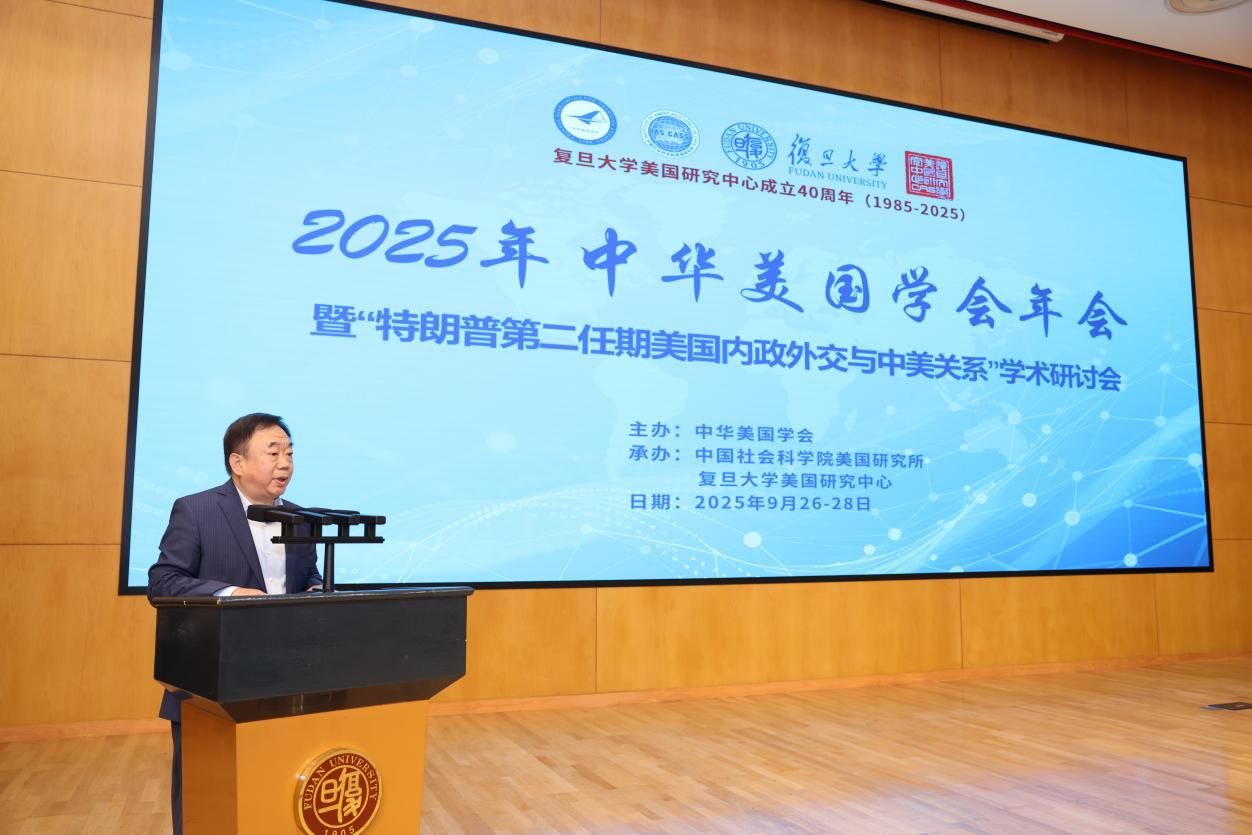
The opening ceremony was chaired by Ni Feng, President of CAAS. Keynote speeches were delivered by Wang Jisi (Honorary President of CAAS; Founding Dean of the Institute of International and Strategic Studies, Peking University), Tao Wenzhao (Honorary Member of the CASS Academic Division; Research Fellow, IAS CASS), and Yang Jiemian (Former President of the Shanghai Institutes for International Studies; Chair of its Academic Advisory Board).
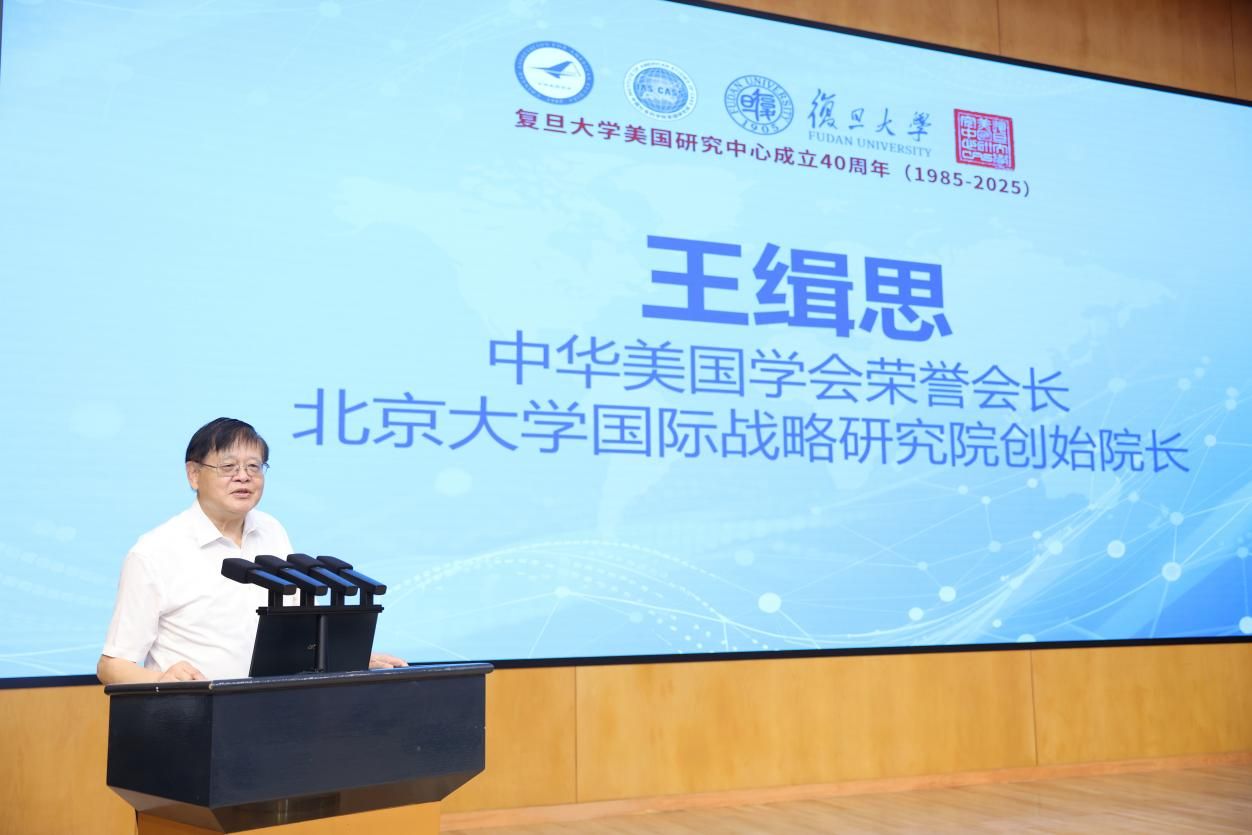
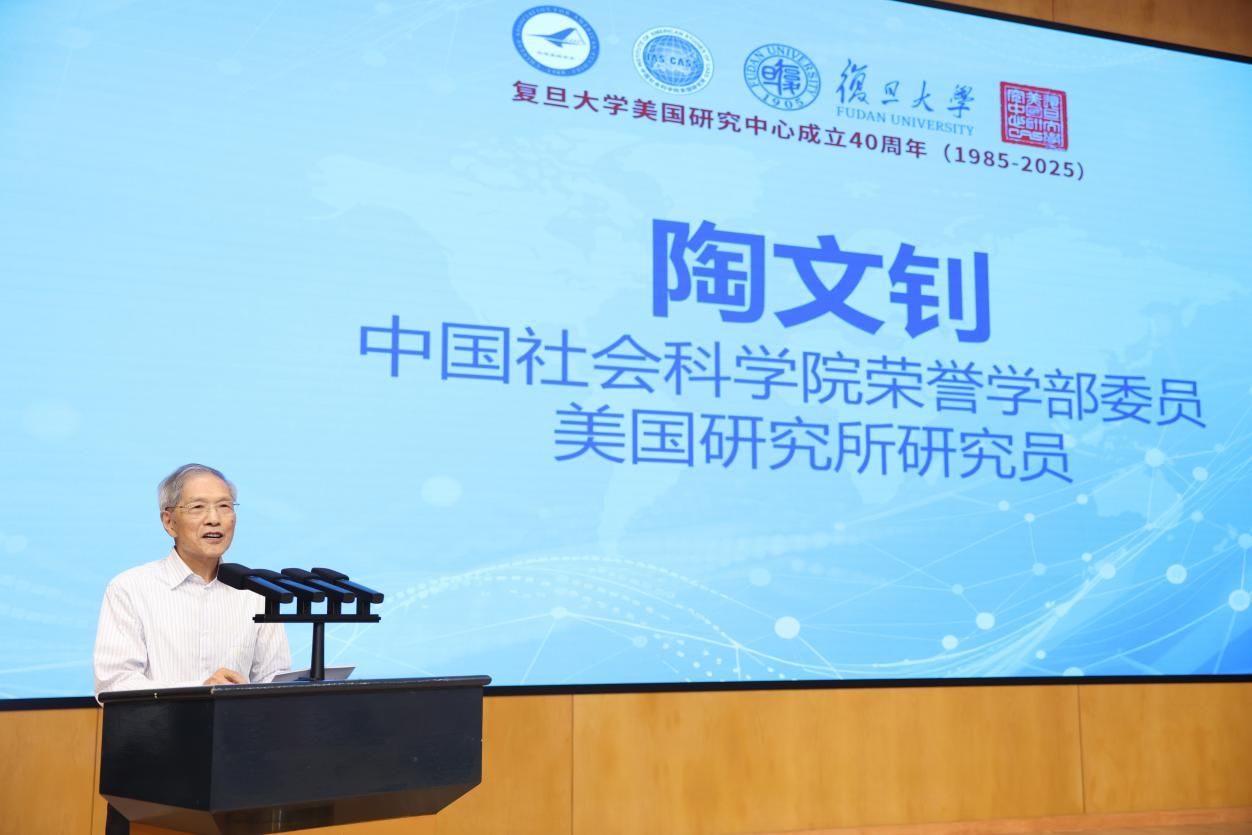
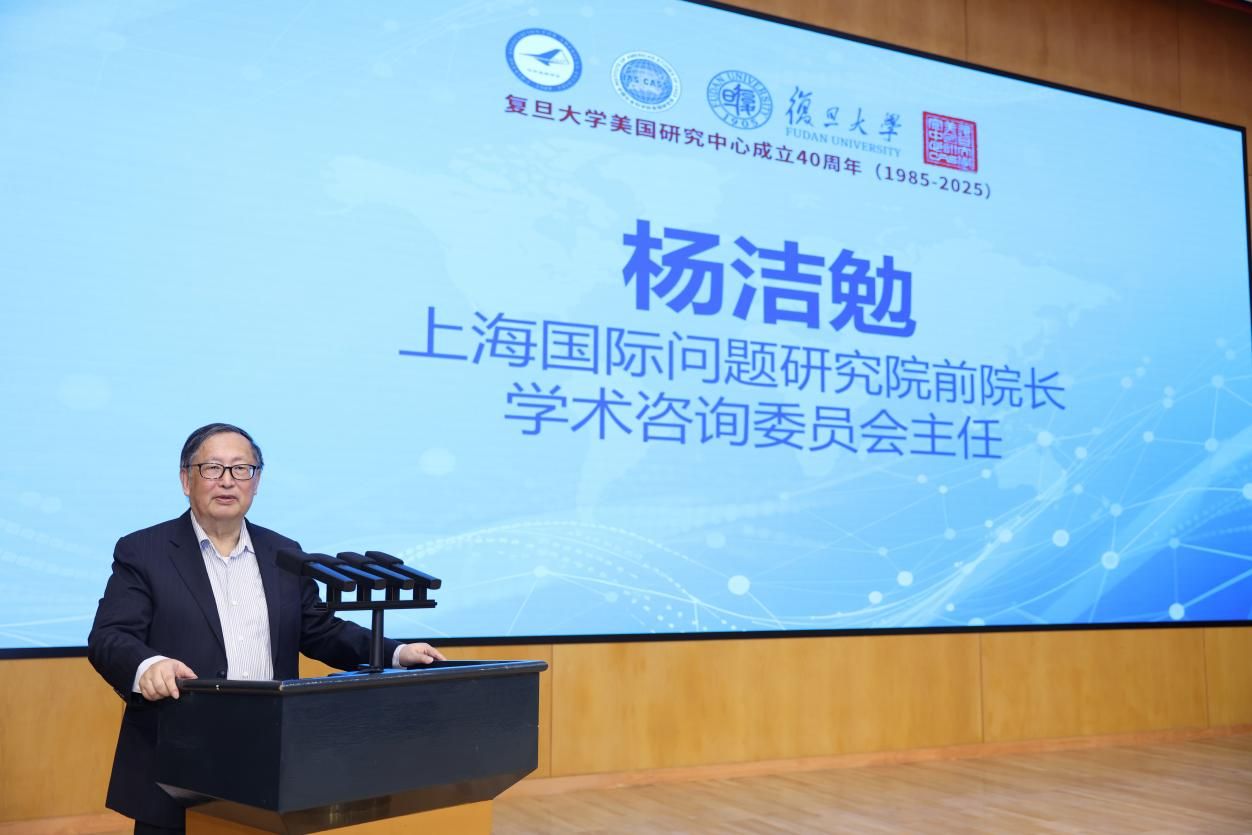
The guest speaker session was chaired by Chen Dongxiao (Vice President of CAAS; President of the Shanghai Institutes for International Studies). Featured speakers included Wu Xinbo (Vice President of CAAS; Dean of the Institute of International Studies and Director of the CAS Fudan), Xu Yihua (Distinguished Professor, Fudan University), Liu Qing (Vice President of CAAS; Vice President of the China Institute of International Studies), Fan Jishe (Vice President of CAAS; Deputy Director General, Institute for International Strategic Studies, Party School of the Central Committee of the CPC/National Academy of Governance), Xie Tao (Vice President of CAAS; Dean, School of International Relations, Beijing Foreign Studies University), Wang Honggang (Director General, Institute of Peace and Development, CASS), and Li Wei (Vice Dean, School of International Studies, Renmin University of China). The speakers also took questions from the audience.
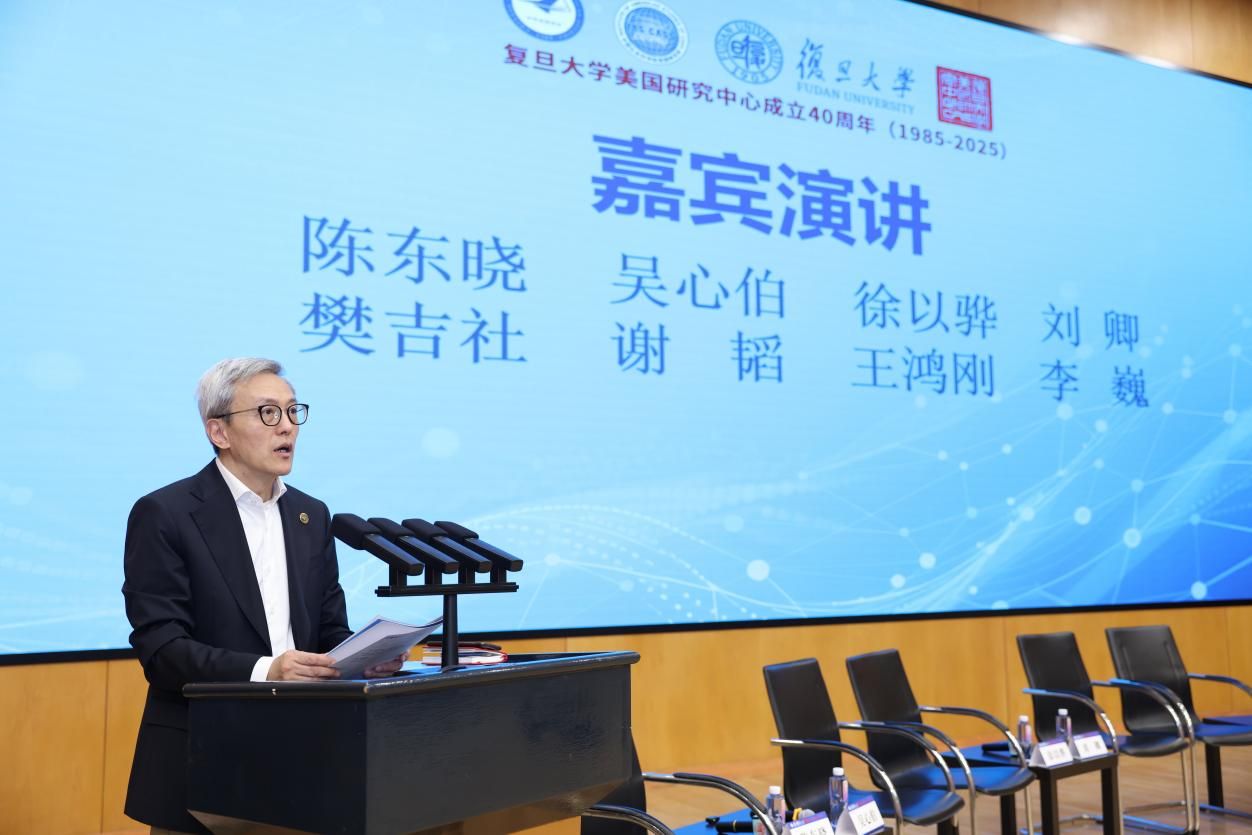
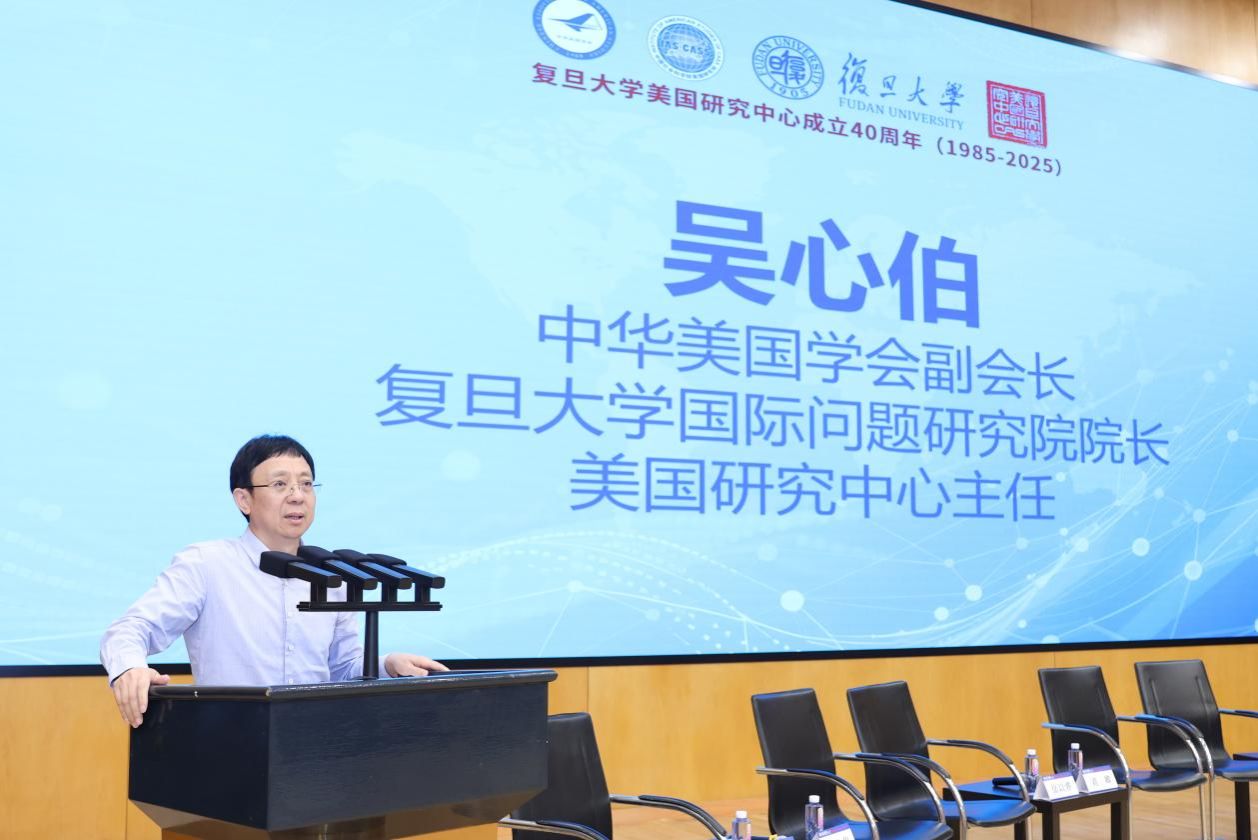
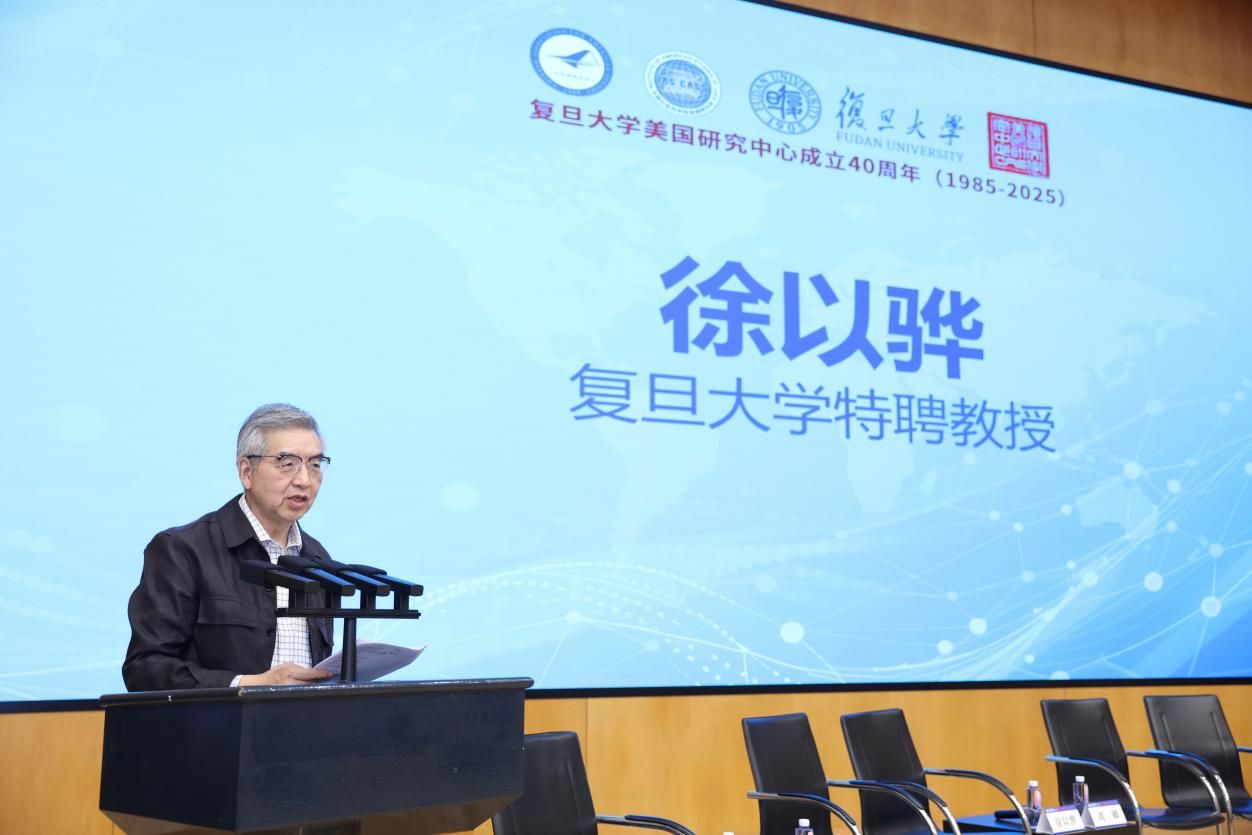
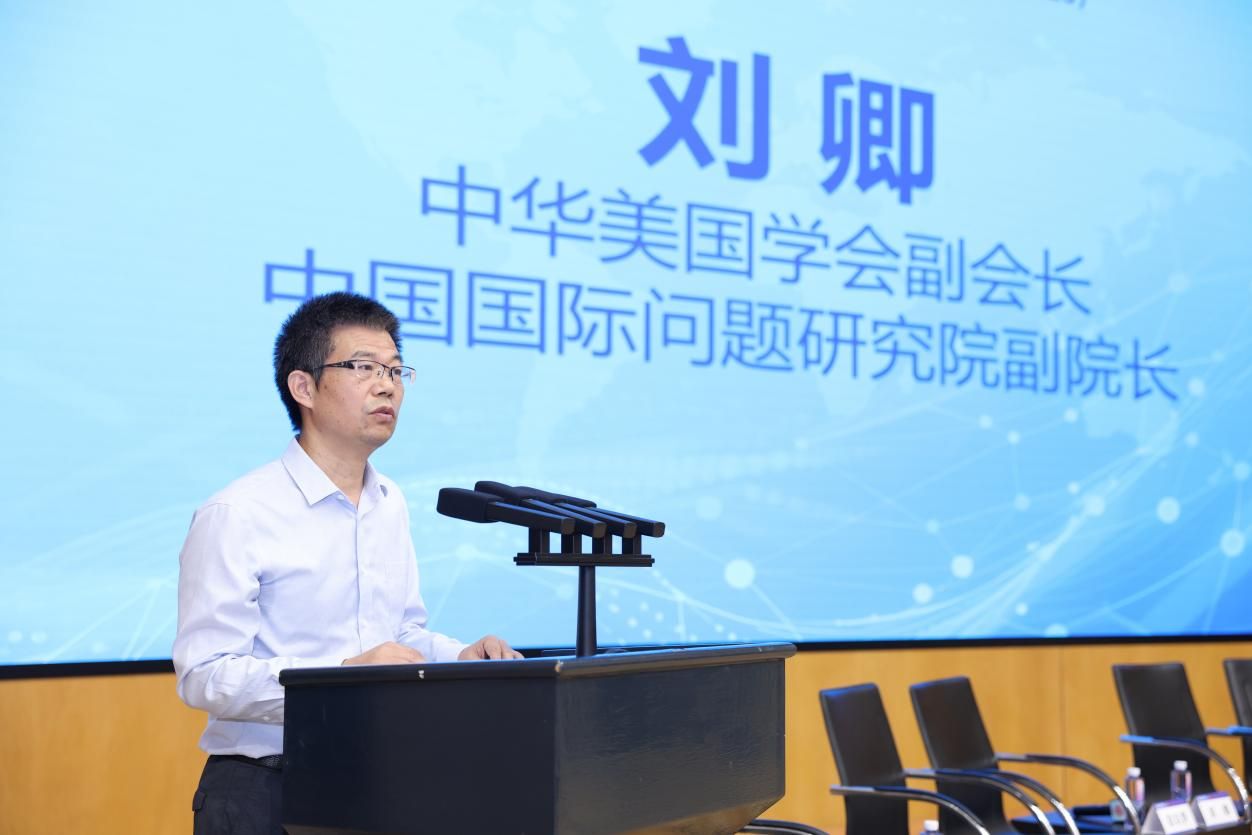
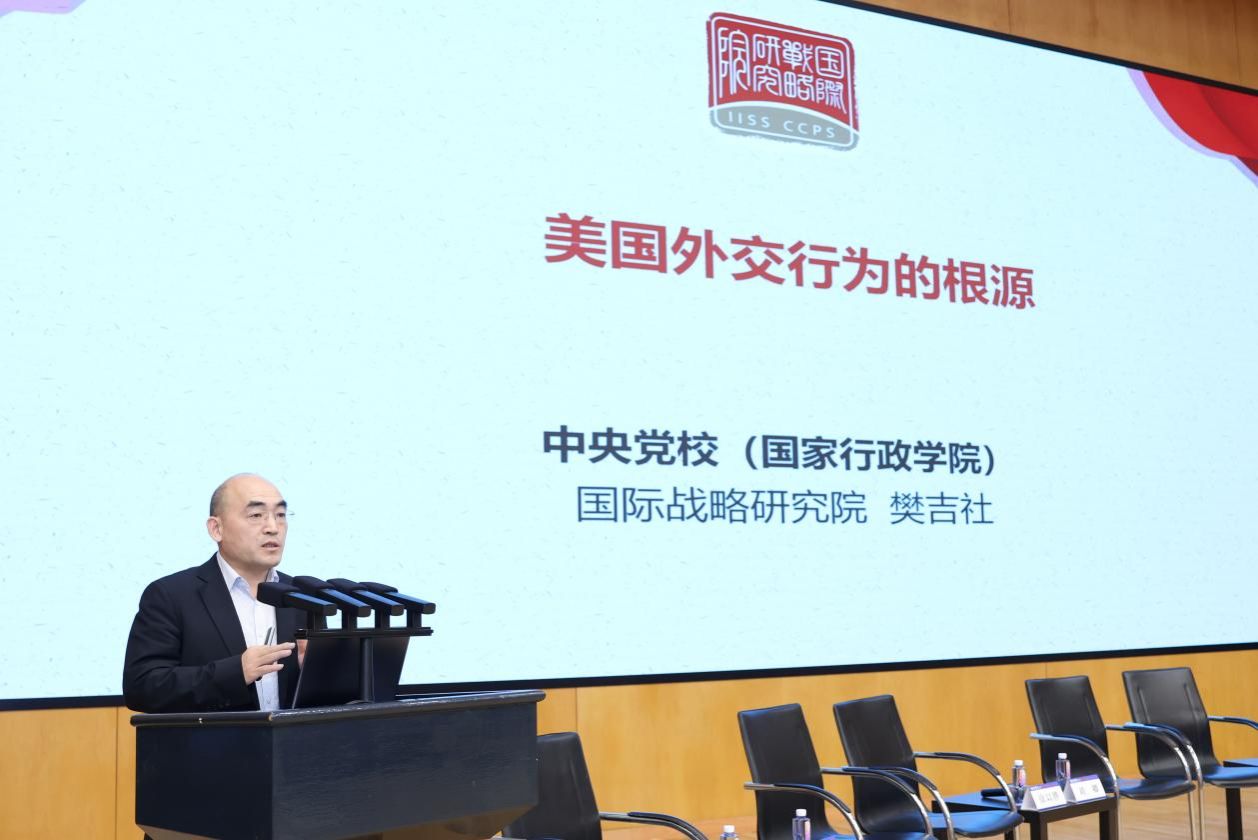
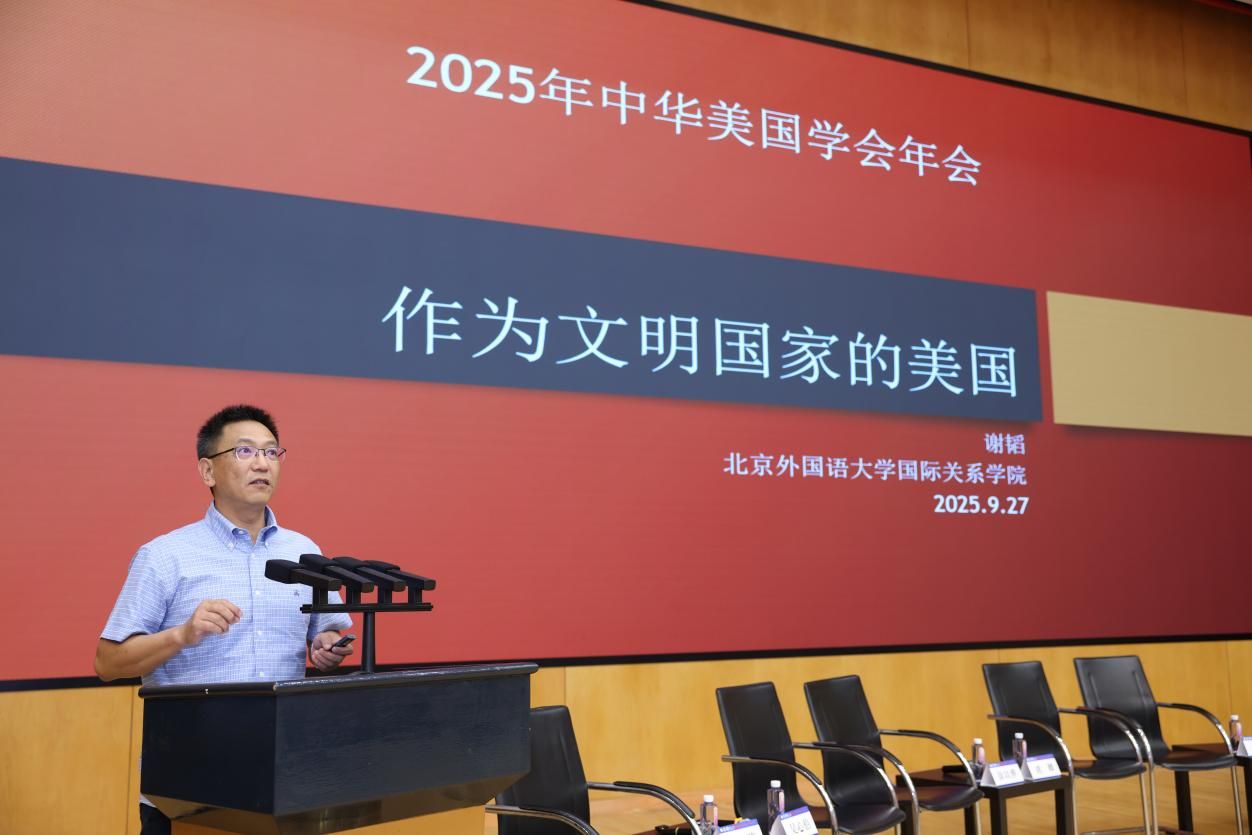
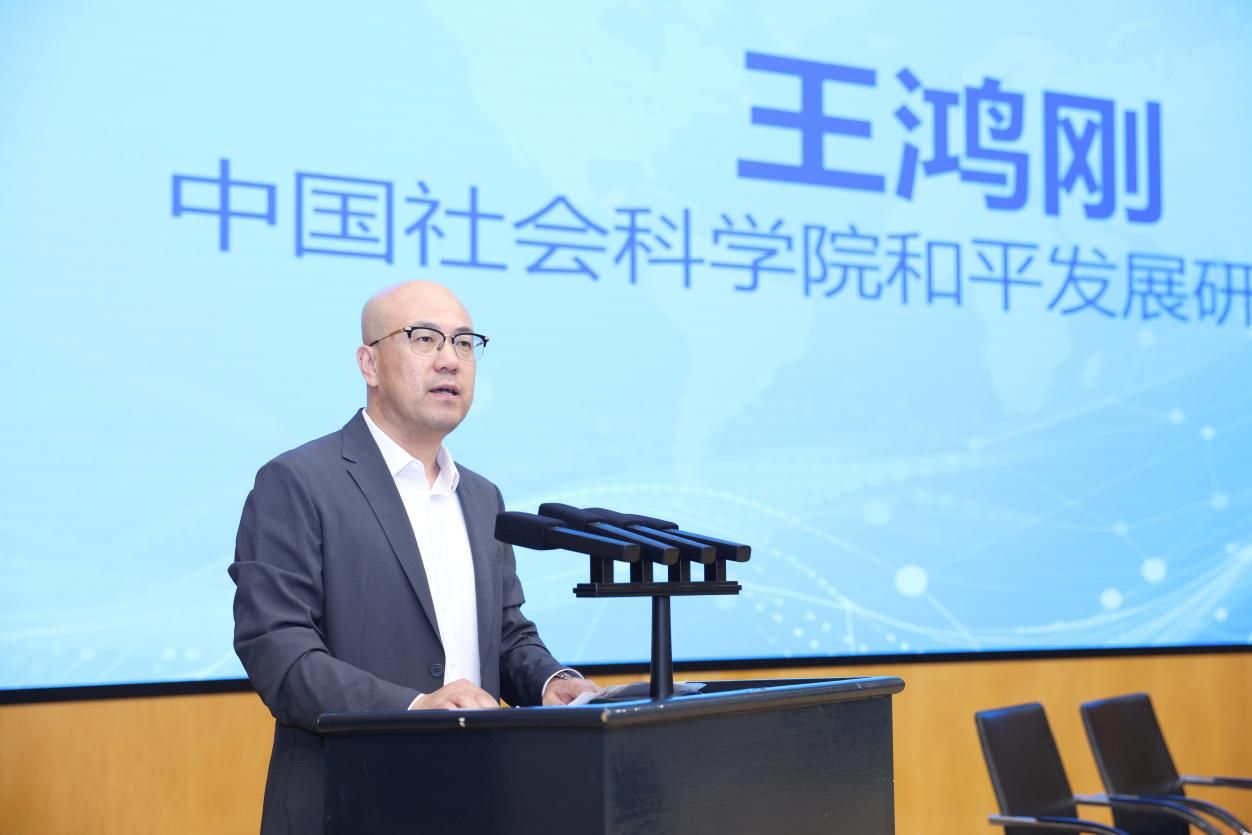
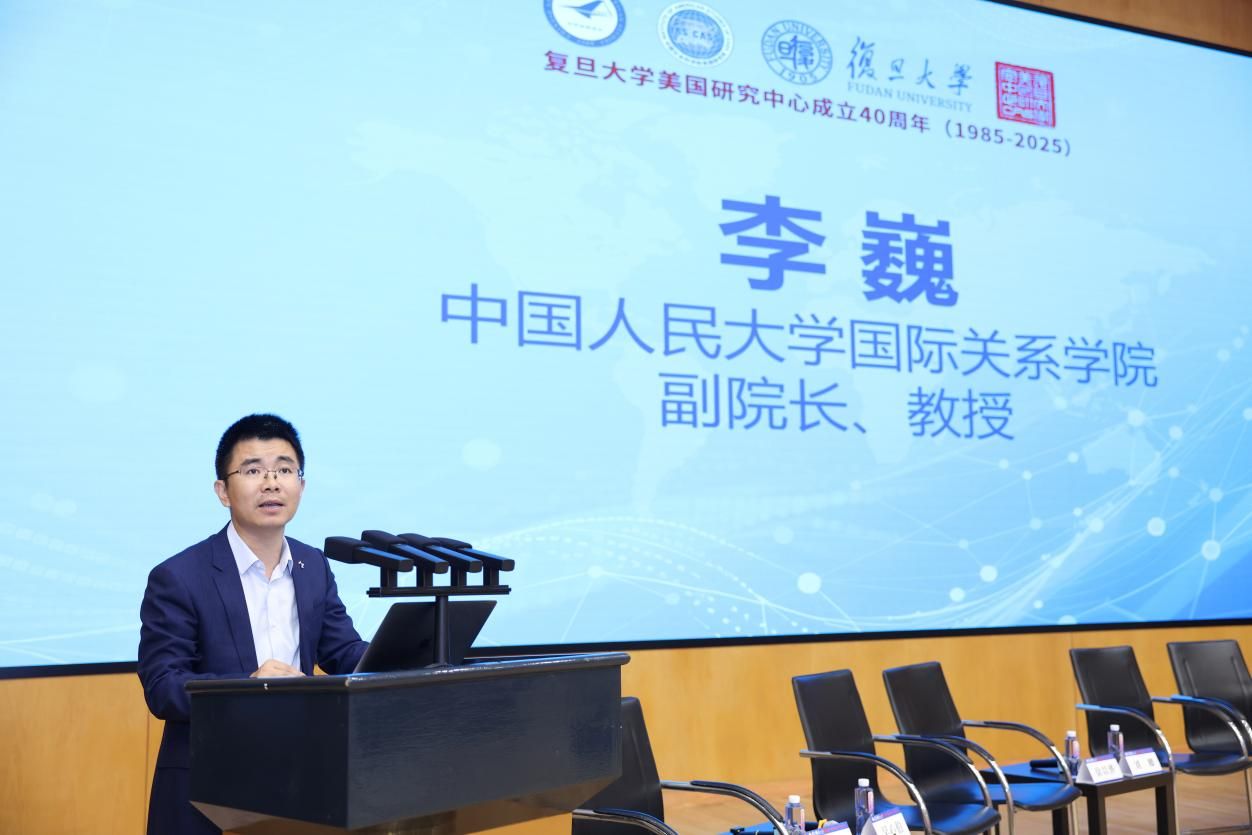
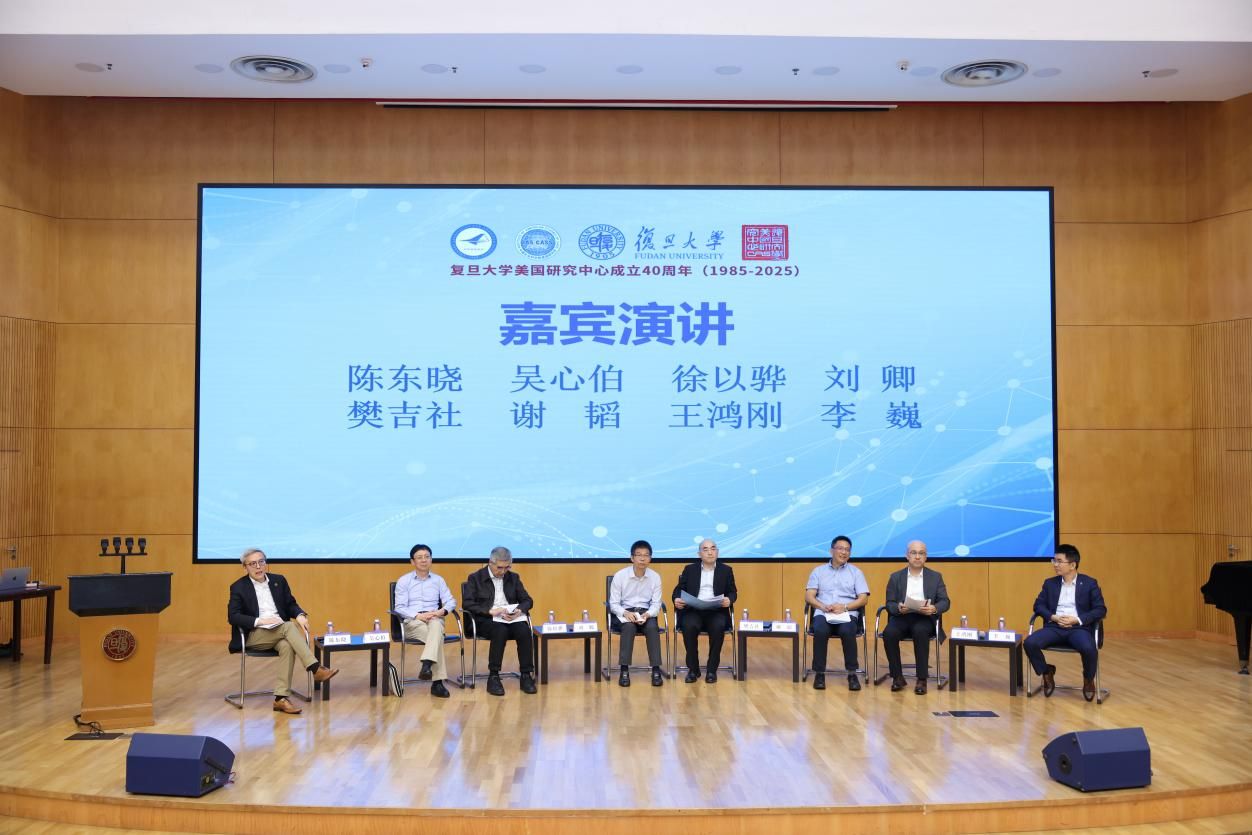
In his speech, Wu Xinbo emphasized that innovation in American Studies must serve the broader goal of building a knowledge system rooted in China’s academic perspectives—one that reflects Chinese scholars’ research priorities and conceptual frameworks, offering a distinct interpretation of the United States grounded in Chinese values. Such a system differs from the approaches developed in the United States, Europe, Japan, and elsewhere; it represents an engagement between Eastern and Western civilizations and a dialogue between a rising power and an established superpower. Wu underscored that only with a strong sense of academic responsibility and confidence can Chinese scholars fulfill this mission.
The conference featured four panels, where participants discussed eight thematic areas:
– U.S. domestic politics under “Trump 2.0”
– U.S. foreign policy under “Trump 2.0”
– U.S. economy and foreign economic policy
– U.S. national strategy in the “Trump 2.0” era
– U.S. role in China’s regional security environment
– China–U.S. relations in the “Trump 2.0” era
– U.S. science and technology strategy and China–U.S. tech competition
– Domestic politics and its impact on U.S. foreign policy
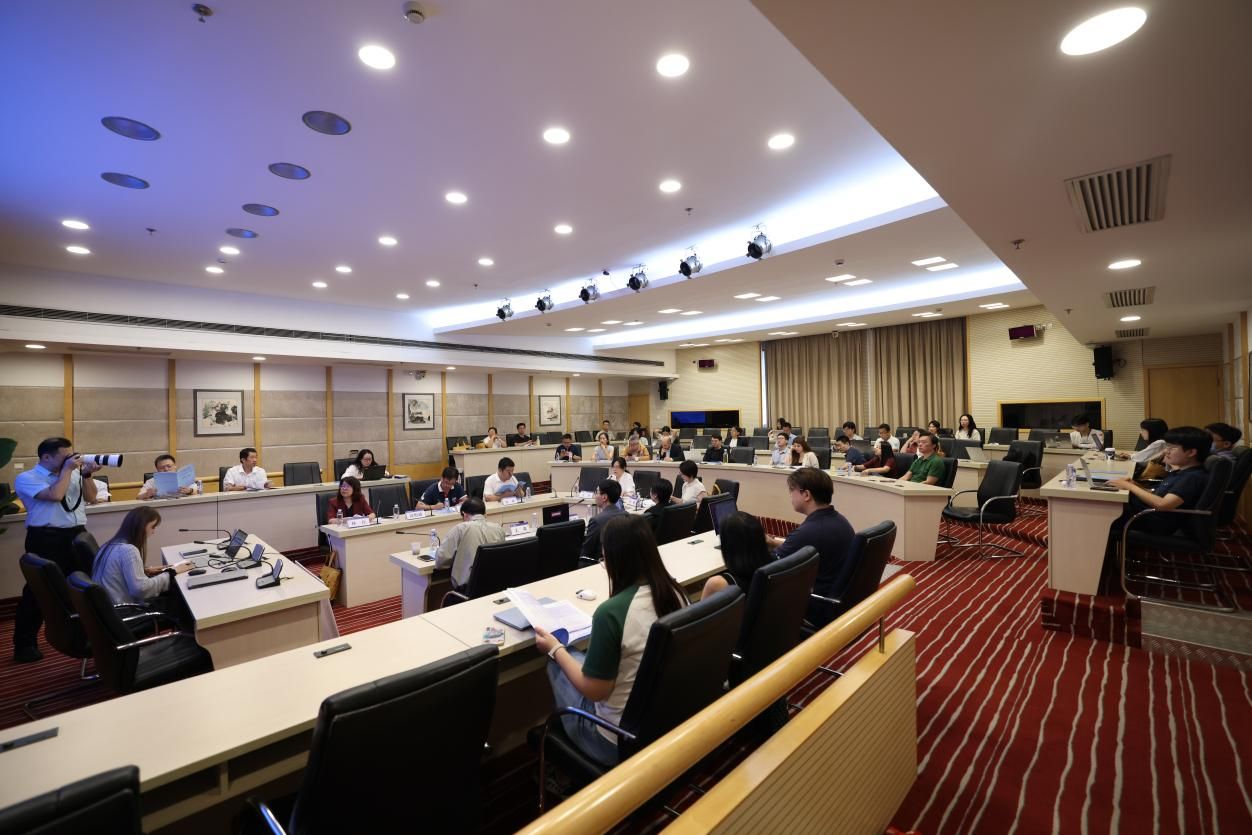
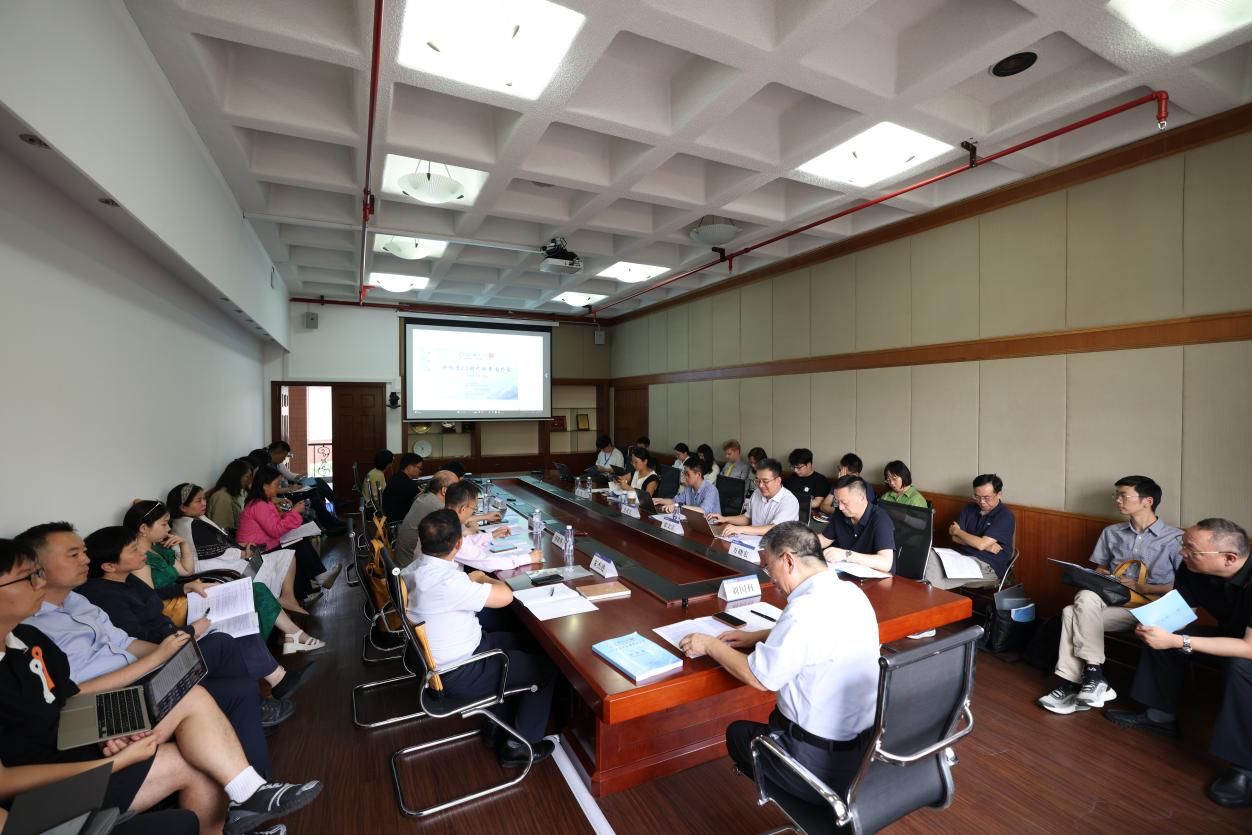
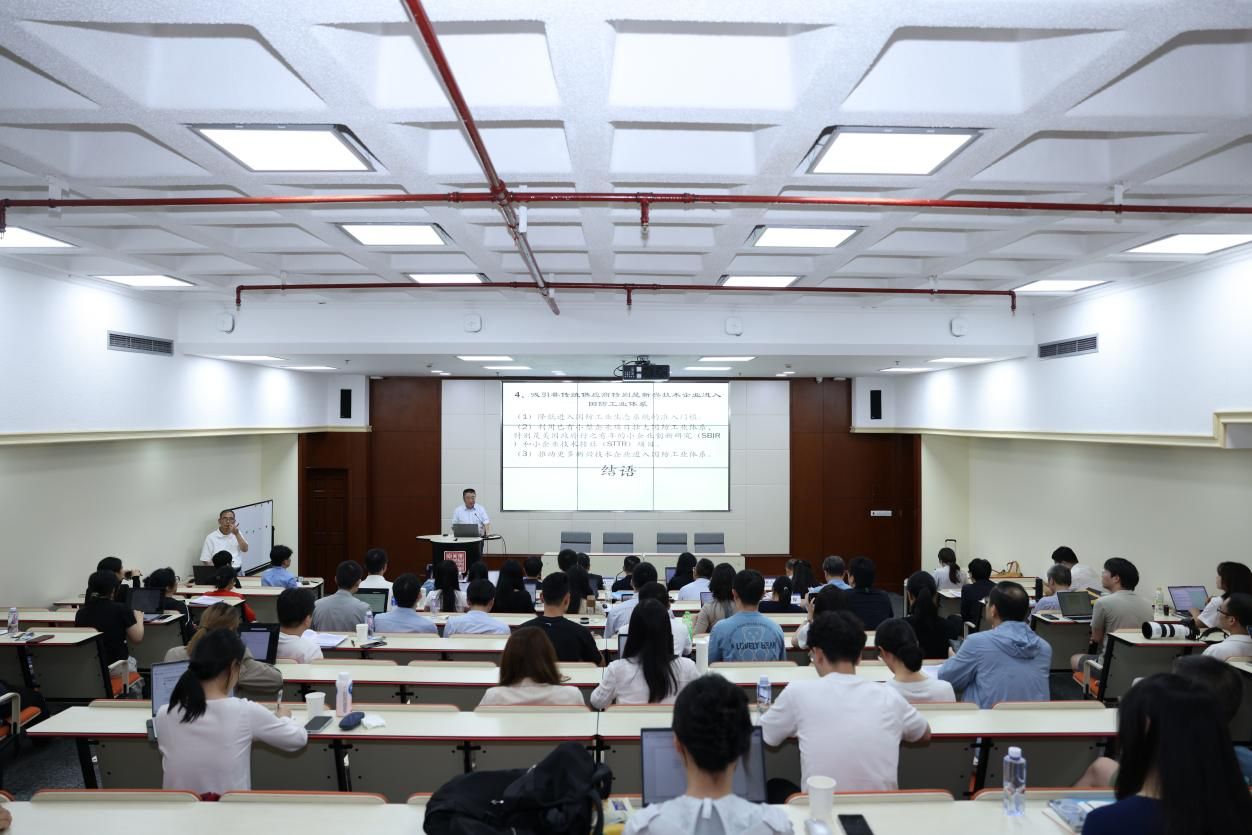
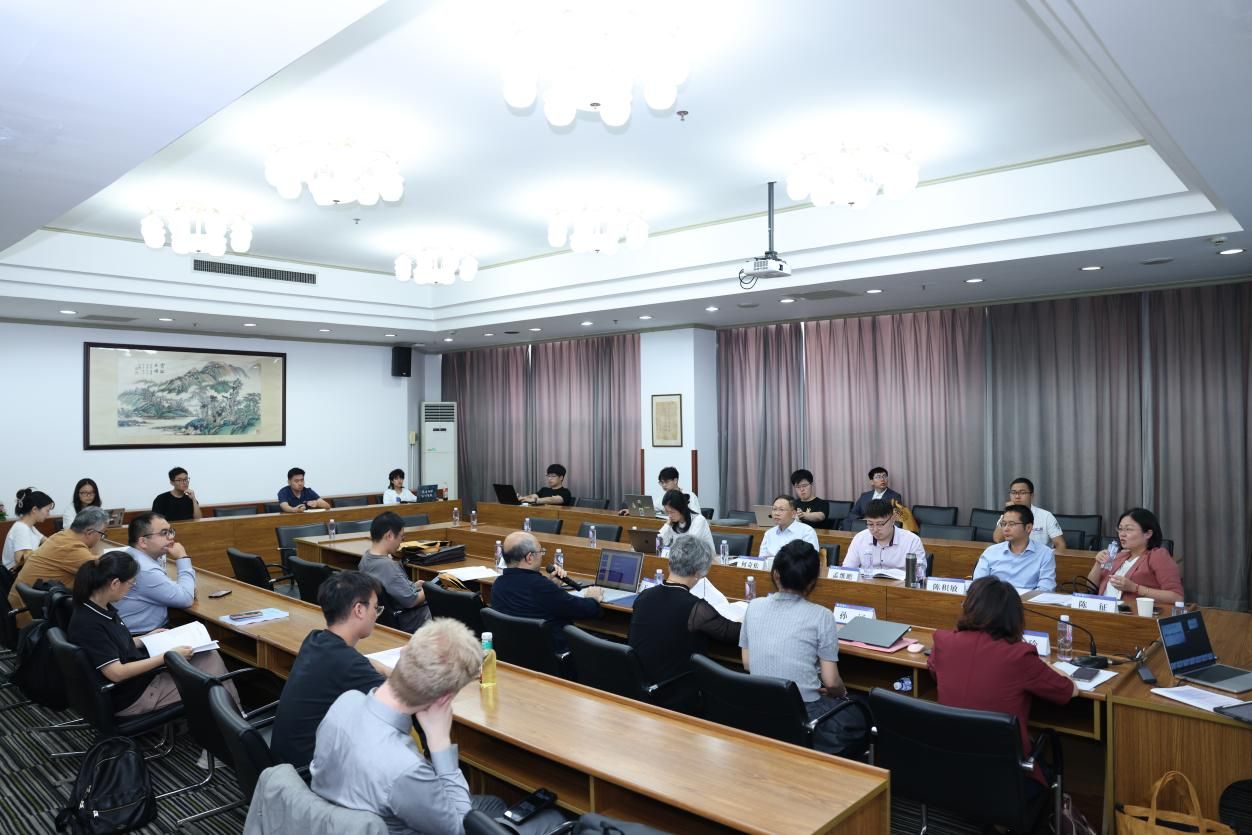
The closing session was chaired by Professor Song Guoyou, Deputy Director of the CAS Fudan. Eight scholars delivered panel summaries. Yuan Zheng, Vice President and Secretary General of CAAS; Deputy Director of the IAS CASS, delivered the concluding remarks.
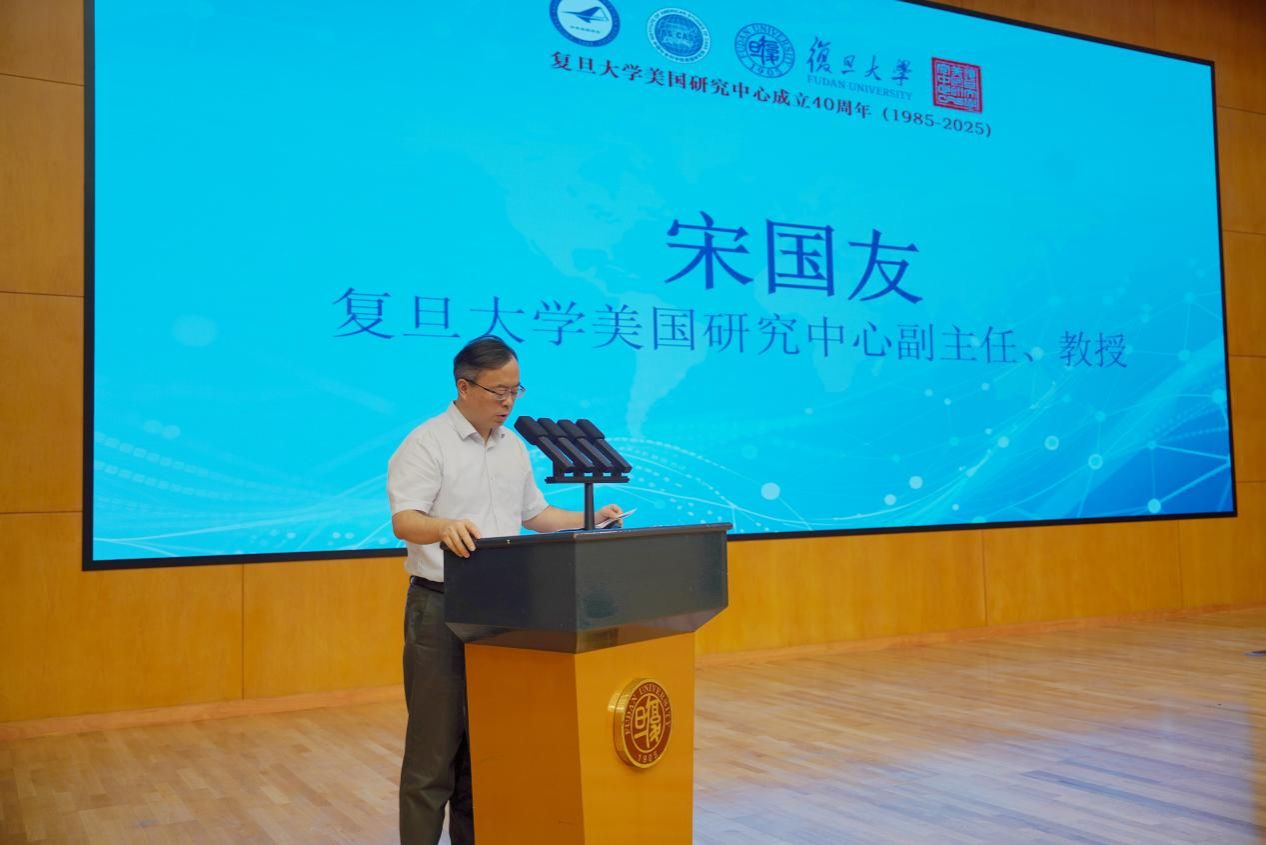
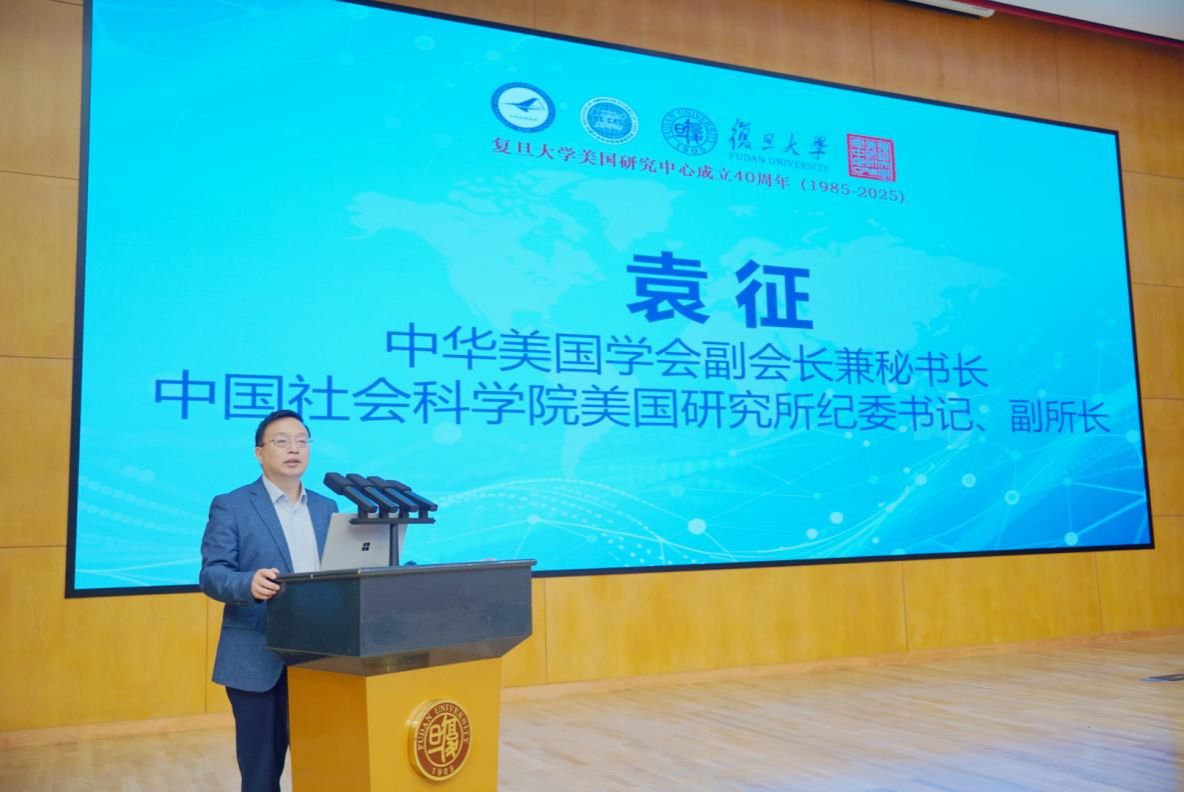
At the CAAS Board Meeting, Yuan Zheng presented the 2024 Annual Work Report. Two new Deputy Secretaries General were appointed to strengthen CAAS’s administrative capacity. Song Chengfang, Deputy Dean of the School of Foreign Languages at Shihezi University, delivered a presentation announcing the university’s successful bid to host the 2026 CAAS Annual Conference.
Through in‑depth discussions and broad‑based exchanges, participants gained deeper insight into the logic and implications of U.S. domestic and foreign policy under Trump’s renewed leadership. There was both strong consensus and lively academic debate. Inspired by a shared sense of mission and scholarly engagement, participants expressed great anticipation for next year’s gathering.
CAAS, IAS CASS, and CAS Fudan will continue to work together to advance the discipline, foster intellectual exchange, and train the next generation of scholars in American Studies.
